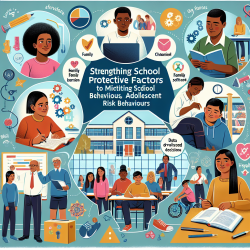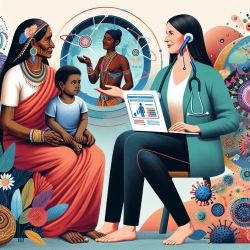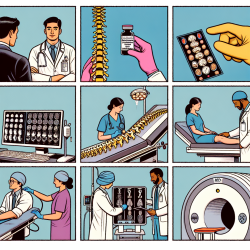Understanding the Impact of Neighborhood Disadvantage on Young Adults' Health
Neighborhood disadvantage is a critical factor influencing health outcomes, particularly among young adults. The recent study titled Neighborhood Disadvantage and Poor Health: The Consequences of Race, Gender, and Age among Young Adults provides insights into how race, gender, and age intersect to affect health in disadvantaged communities. This research is pivotal for practitioners looking to improve health outcomes through targeted interventions.
Key Findings from the Study
The study utilized data from the National Longitudinal Survey of Youth 1997 cohort, focusing on young adults aged 18 to 30. It found that:
- Neighborhood disadvantage is positively associated with poor health across all groups.
- The impact of neighborhood disadvantage on health is more pronounced in older young adults.
- Black men in highly disadvantaged neighborhoods have better health outcomes compared to their White counterparts.
- Black women experience health outcomes similar to White men and women, despite living in more disadvantaged neighborhoods.
Implications for Practitioners
Practitioners can leverage these findings to tailor interventions that consider the unique stressors faced by different demographic groups. Here are some strategies:
- Targeted Interventions: Develop programs that address specific needs of young adults in disadvantaged neighborhoods, focusing on mental health support and access to healthcare.
- Community Engagement: Engage community leaders to create safe spaces and promote healthy lifestyles, addressing both physical and psychological safety.
- Policy Advocacy: Advocate for policies that improve economic opportunities and reduce crime in disadvantaged neighborhoods, thereby alleviating stressors that impact health.
Encouraging Further Research
While the study provides valuable insights, it also highlights the need for further research. Practitioners and researchers should explore:
- The mechanisms behind the health paradox observed in Black men and women in disadvantaged neighborhoods.
- The role of subjective perceptions of neighborhood conditions on health outcomes.
- Expanding the research to include other racial and ethnic groups to understand broader implications.
By understanding and addressing the complex interplay of neighborhood disadvantage, race, gender, and age, practitioners can develop more effective strategies to improve health outcomes for young adults. To read the original research paper, please follow this link: Neighborhood Disadvantage and Poor Health: The Consequences of Race, Gender, and Age among Young Adults.










